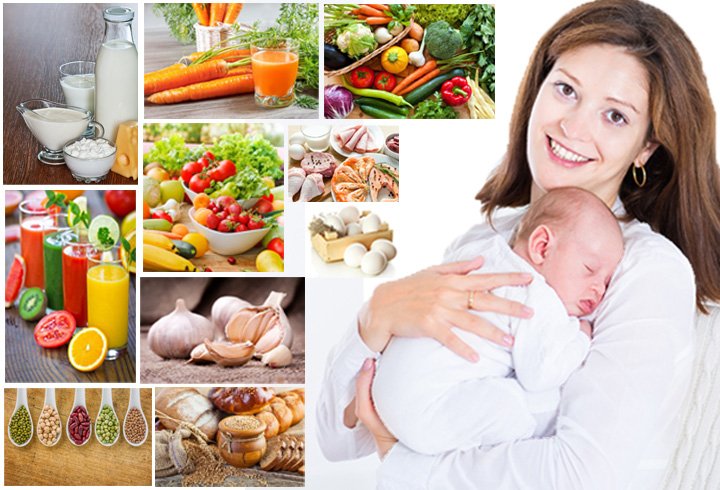
What should a nursing woman eat?
Breastfeeding
The mother's body prepares during the pregnancy to produce milk in preparation for feeding the baby with appropriate food through the process of breastfeeding. The breastfeeding meets all the baby needs of the integrated food, which in turn gives the child healthy food and appropriate self-immunity to most infectious diseases and chronic, in addition to protect against pneumonia Diarrhea and asthma.
h
Breast milk contributes to the growth of the sensory and cognitive skills of the child. Due to the secretion of milk within the body of the mother, it is always at the appropriate temperature for the child, and not only the benefit of the process of breastfeeding on the child only, but it helps in the return of the mother's uterus to its position before birth and reduce bleeding, For protection against breast cancer and ovaries. [1]
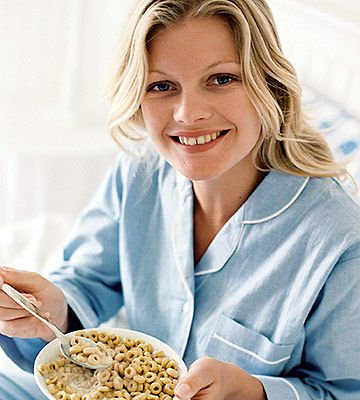
Feed the nursing mother
The breastfeeding mother gives her child plenty of nutrients and loses many calories, so she must compensate for this loss as well as the continuity of production effectively. The mother needs a healthy balanced diet, and the nursing mother must eat sufficient amounts of fluids and vitamins, and vitamin D in particular. , In addition to the needs of the body and structure of the health of metals available types of foods, and it is advisable in such circumstances to propose a suitable and orderly diet program, used by the breastfeeding to help them to determine their balanced diet in quantity, quality and timing, For a balanced mother, the child was more stable and less prone to gastrointestinal disorders such as bloating and gas. [2]
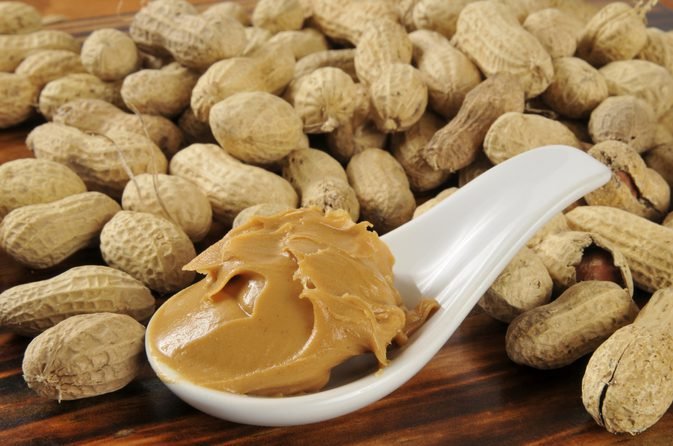
Lactation diet
The breastfeeding mother produces three to four kilograms of milk per day. This milk reflects the type and amount of food you feed. nursing mother all necessary to secure their diet and the completion of the process of nutrient growth and development of the child, and should be organized food program number and quantity so as to ensure the continuity of the mother for energy and not exposed to any lack of continuously along the lactation period, it is best to divide the main meals Of several meals sequenced in appropriate amounts do not exceed the limits need not overeating leads them to obesity or negligence ysharha hungry, [3] The components of healthy food for infants should be supported by the important elements to complete the process of development of the child properly, and can be summarized the main elements in terms of the need of the mother and the food sources in the following:
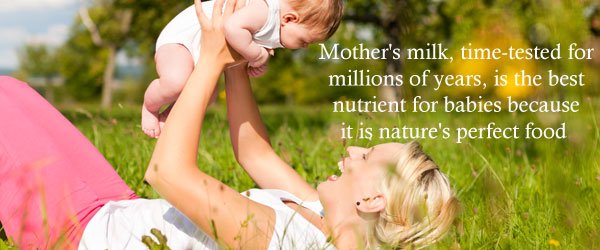
Fish
Fish are an integrated protein diet. They contain vitamin D and unsaturated oils, as well as fatty acids such as omega-3 fatty acids, which are very important substances in the growth of the child's brain membranes, and care must be taken to obtain enough of them due to lack of sources of food; Adequate amounts of omega-3s during infancy have a positive effect on the child's vision and the development of his mental and cognitive abilities. [4]
fruits and vegetables
Fruits and vegetables contain abundant amounts of vitamins and minerals, as well as water and other major nutrients. The leafy vegetables contain high levels of vitamin A, vitamin C, iron and antioxidants, as well as low calorie intake So thermal must multiply them. [5]
Milk and dairy products
Milk and its derivatives contain useful vegetable fats and proteins, so the nursing mother should drink at least three cups of milk a day. It is a major source of calcium. In addition, milk supplies the body with amounts of vitamin D and vitamin B, which help the growth of the baby's bones and teeth. . [6]

Metal elements
The mineral elements contribute to the healthy and healthy growth of the infant. It draws all the body's milk from the mother's milk, calcium, which is very important in the formation of the bones and teeth and the safety of its growth, in addition to its important role in blood clotting and metabolism. Dairy and its derivatives are a major source. Eat foods containing iron, such as red meat, liver, and vegetables. [7]
Points that a nursing woman must take into account
There are some points on the nursing mother to observe them, including: [8]
The mother should avoid certain foods that may cause colic, gas and bloating in the abdomen; such as flowering, cabbage, and legumes, because it will cause the gas and the annoying and painful colic and thus the baby.
You should know that the mother's milk has the same taste as its food, so be careful and choose the food well, you should stay away as far as possible from foods with hot taste and pungent, and must be moderate in drinking caffeine, multiplication leads to intestinal inflammation and tension and colic of the child.
The mothers are advised to take vitamin D supplementation because they are important for the healthy growth and development of the baby's body, as well as to strengthen the mother's stock to cover the baby's need without detracting from the need of the body. This does not detract from the mother's need to get the important elements from her natural sources of food as good as possible. , And if the mother is exposed to iron deficiency may need the doses supported and complementary, taken after consultation with the doctor. [9]
Components of breast milk
The mother's milk consists of more than 100 kinds of nutrients that meet the child's nutritional and immunological needs in quantities proportional to its various stages of growth. Among the most important ingredients is the following: [10] [11]
Iron: Although iron in breast milk is relatively less than other elements, it is easy and fast absorption of the child, unlike the iron found in artificial milk is difficult to absorb and digestion.
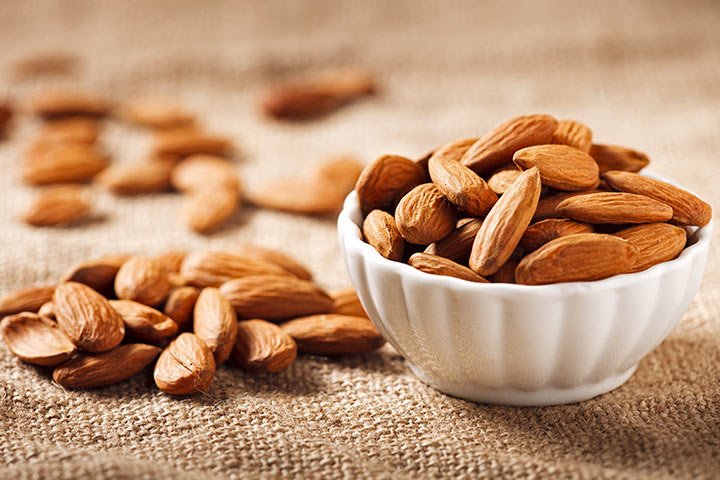
Proteins: The mother's milk contains the amounts of appropriate proteins needed by the child in the process of growth and development of the brain, and is characterized by easy digestion and absorption unlike animal proteins found in artificial milk
Fat: Fat in the mother's milk is a balanced ratio of a series of saturated and unsaturated fatty acids that provide the child with the thermal energy needed for its growth, in addition to its important role in the growth of the child's brain.
Sugars: Breast milk contains the appropriate amounts of lactose sugar in proportion to the proportion of fat building and growth process of the brain of the baby, in addition to suit the basic digestion process in the child.
Vitamins: The mother's milk contains many different vitamins needed by the baby in the process of growth in various areas, in addition to vitamin D, which is a necessary vitamins to absorb calcium and phosphate and thus prevent rickets and other diseases.
Immune materials: substances that provide protection against infections and diseases. Immunological substances in breast milk increase the immune system's efficiency and growth, as well as the catalysts for beneficial bacteria formation. [10] [11]
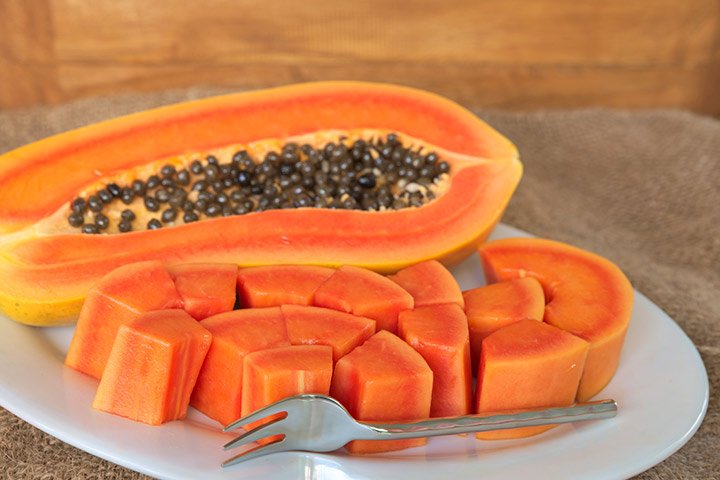
References
1- ↑ "Exclusive breastfeeding" , World Health Organization , seen on 13-2-2017.
2- ↑ Carla Murad, Nutrition Secrets with Carla , page 61-62.
3- ↑ "Lactating food .. Proteins provide the necessary needs for the child and the mother , " Riyadh newspaper , see it on 14-2-2017.
4- ↑ "Eating fish when you're breastfeeding: How to avoid mercury and still get your omega-3s" , babycenter , Retrieved 14-2-2017.
5- ↑ "10 recommended foods within breastfeeding diet" , Web Medicine , see it on 22-3-2017.
6- ↑ "The importance of healthy nutrition during breastfeeding ... for you and your child" , Nestle , see it on 22-3-2017.
7- ↑ World Health Organization - Selected University Professors in the Arab World (2005), Food and Nutrition (Second Edition), Beirut-Lebanon: Academia, p. 171.
8- ↑ "Optimal nutrition for nursing mothers" , Web Medicine , see it on 19-2-2017.
9- ↑ "Optimal nutrition during puberty" , Web Medicine , see it on 22-3-2017.
10- ^ A b "breast milk ingredients" , Doctor Net , briefed him on 13.02.2017.
11- ^ A b " the mother 's milk and industrial milk whichever is better for the future of the child" , Khaleej newspaper , briefed him on 13.02.2017.
By: Marwa Hassoun
Hummus can be an ideal food for lactating women if the garlic is added to it and lemon juice. The lactating woman can harvest the maximum benefit of milk production by obtaining high levels of protein found in chickpea, in addition to the anti-inflammatory drugs found in garlic, The baby also has access to milk, and garlic also possesses the ability to stimulate milk production.
Thank you for the important additions
Your participation makes me happy
Une femme enceinte doit prendre soin de manger cinq portions de fruits et légumes par jour, soit en forme de jus, ou sous forme sèche ou en conserve ou congelés ou frais, mais les experts recommandent de manger des fruits frais, car il est mieux que les jus qui contiennent des niveaux élevés de sucre naturel , [1] Selon la Sarah Krieger , dit le spécialiste de la nutrition et de parler officiel sur le sujet de l' alimentation enceinte l' Académie de la nutrition et de la nutrition à Saint - Pétersbourg en Floride, les fruits et les légumes sont riches de fibres, de vitamines et de minéraux, comme ils sont faibles en calories, donc les femmes enceintes devraient Concentration p A prendre, surtout pendant les deuxième et troisième trimestres de la grossesse. [2]
Thank you for the important additions
Your participation makes me happy
Sesame: It is possible to take advantage of sesame in the production of milk by eating its seeds as normal, or eat one of its products Kaltahini and sweetness, but without over-eating sweetness in particular, because of the increase in weight.
Thank you for the important additions
Your participation makes me happy
Il y a des suppléments diététiques qu'une femme enceinte devrait prendre pendant la grossesse, mais assurez-vous de consulter votre médecin avant de les utiliser, notamment:
Thank you for the important additions
Your participation makes me happy
Spinach: A nursing mother needs a large number of calories and vitamins to produce enough milk to feed her baby. Spinach contains an adequate amount of vitamins, minerals and energy, most notably iron, calcium, folic acid and, most importantly, phytoestrogen, Lactation, because it carries many qualities of the hormone estrogen.
Thank you for the important additions
Your participation makes me happy
La consommation enceinte devrait être une quantité suffisante de protéines et de calcium, pour répondre à la bébé de besoins, et en mangeant deux produits laitiers , ils contiennent deux types de protéines sont: la caséine ( en anglais: Caséine), et petit - lait ( en anglais: lactosérum), où est la meilleure source alimentaire laitière du calcium, Ils fournissent également de grandes quantités de phosphore, de différentes vitamines B, de magnésium et de zinc. [3]
Thank you for the important additions
Your participation makes me happy
A high percentage of mothers are breastfed to feed their newborn babies, providing them with a full and comprehensive diet sufficient for their first-year needs. However, some mothers suffer from poor milk production or poor production over time, leaving the baby hungry all the time To solve this problem, lactating mothers can focus on getting certain types of foods that increase milk production.
Thank you for the important additions
Your participation makes me happy
This post has received gratitude of 4.16% from @appreciator courtesy of @allizz!
You got a 2.27% upvote from @postpromoter courtesy of @allizz!
Want to promote your posts too? Check out the Steem Bot Tracker website for more info. If you would like to support the development of @postpromoter and the bot tracker please vote for @yabapmatt for witness!
You got a 3.42% upvote from @buildawhale courtesy of @allizz!
If you believe this post is spam or abuse, please report it to our Discord #abuse channel.
If you want to support our Curation Digest or our Spam & Abuse prevention efforts, please vote @themarkymark as witness.
Nice post and very important post. thanks for sgare